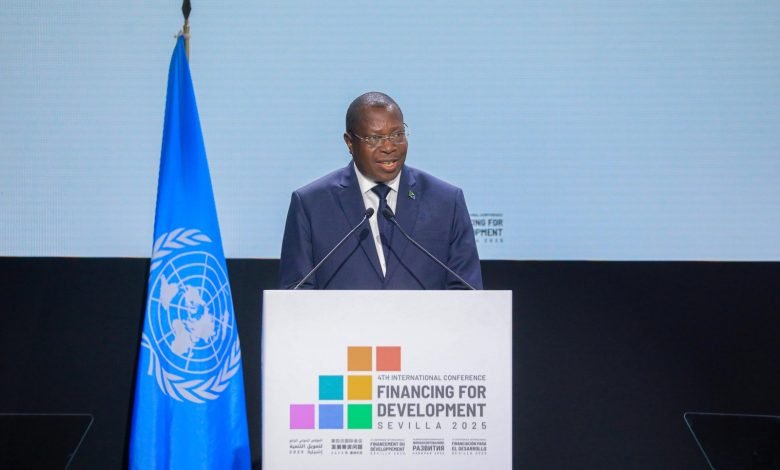Tanzania’s Vice-President Dr. Philip Mpango has made a heartfelt appeal for the world to overhaul the current global financing system, which he says continues to marginalize developing nations.
Speaking at the opening of the Fourth International Conference on Financing for Development (FfD4), he urged world leaders to build a financial architecture that is fair, sustainable, and rooted in equity.
Representing President Samia Suluhu Hassan, Dr. Mpango told delegates that the present financial order, shaped by legacy systems dating back to the Bretton Woods era, is out of touch with the realities and needs of today’s developing countries. He argued that it has created an imbalance, where the Global South continues to carry the burden of debt while having limited access to affordable finance for sustainable growth.
“We are calling for a system that is inclusive and responsive — one that addresses our development aspirations without trapping us in cycles of unsustainable debt,” Dr. Mpango said in his keynote remarks in Seville, Spain.
The summit began with the adoption of the Seville Commitment (Compromiso de Sevilla), an outcome document setting the stage for renewed global action on development finance. This declaration aims to rebuild trust in international financial institutions like the World Bank and International Monetary Fund (IMF), while demanding reforms that ensure more representative governance, fairer lending policies, and greater access to emergency liquidity for nations facing fiscal stress.
Dr. Mpango emphasized that Tanzania’s push is not for aid dependency but for fairness — calling for reforms that level the playing field and allow low-income countries to attract sustainable investments, fund infrastructure, and respond to crises like climate change or pandemics without sinking deeper into debt.
A major theme of Tanzania’s message was the urgent need for climate financing. Africa contributes less than 4% of the world’s greenhouse gas emissions, yet bears the brunt of climate-induced droughts, floods, and food insecurity.
Also Read; UK to Open Satellite Diplomatic Office in Dodoma
“Justice demands that those who have contributed most to the climate crisis support those who suffer most from its consequences,” said Dr. Mpango, calling for the fulfillment of climate finance pledges made under the Paris Agreement.
He urged global financial leaders to ensure the $100 billion annual pledge for developing countries is delivered, particularly for climate adaptation, mitigation, and resilience-building projects.
Tanzania, he noted, is doing its part. The country is strengthening domestic revenue mobilization, modernizing its public financial management, and aligning national plans with the UN Sustainable Development Goals (SDGs). However, without access to concessional loans and technology transfer, progress will remain constrained.
Dr. Mpango’s appeal also emphasized the importance of technology and digital infrastructure as critical enablers of inclusive growth in Africa. He called for digital finance tools, capacity building, and fair rules on data sovereignty to empower African nations in the global economy.
The FfD4 conference brought together more than 150 countries, development banks, international NGOs, and economists to assess the state of global financing in light of today’s challenges — including rising debt, inflation, inequality, and weakening multilateralism.







